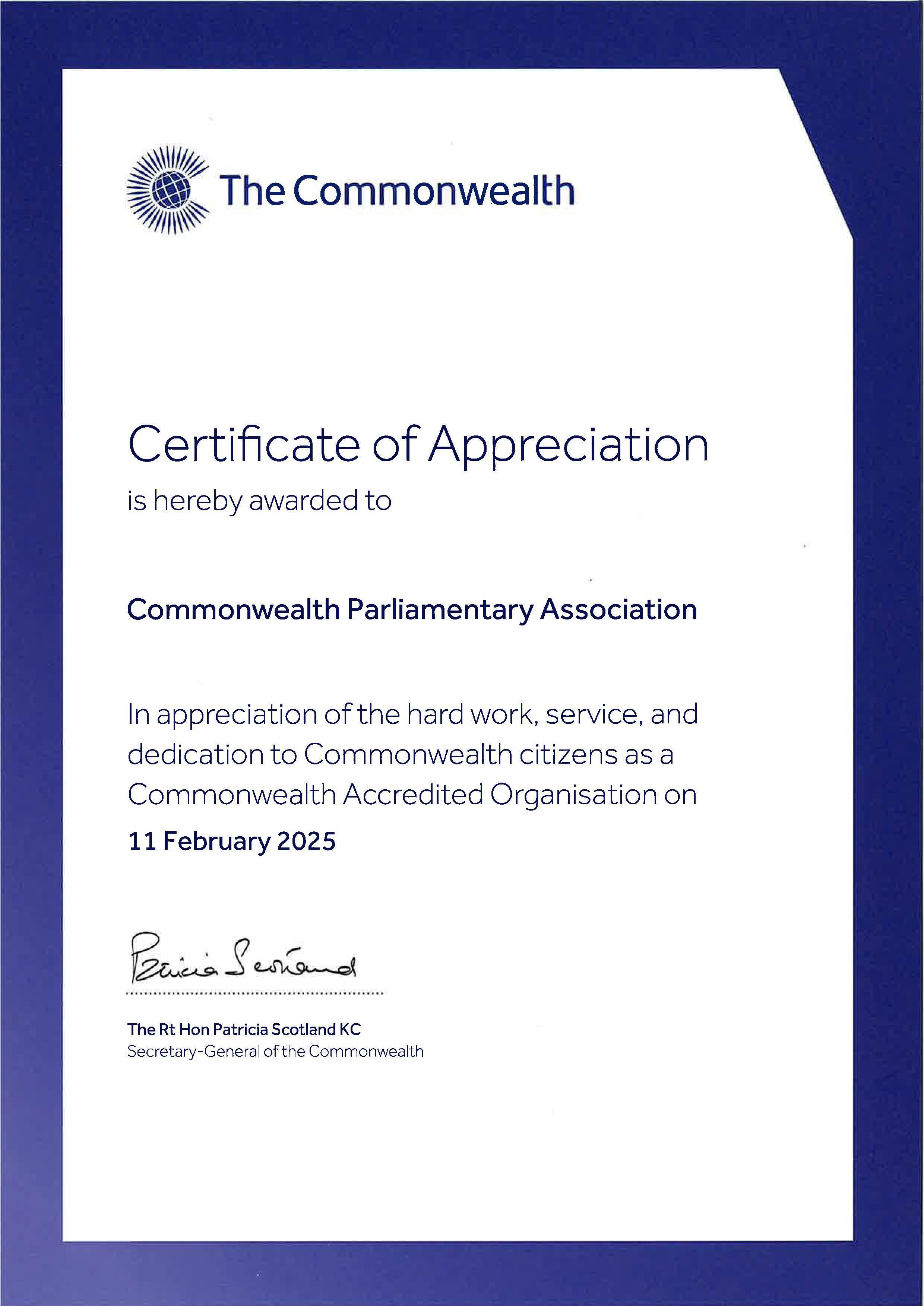The Charter of the Commonwealth (also known as the Commonwealth Charter) is a charter setting out the values of the Commonwealth as well as the commitment of its member states to the following areas:
1. Democracy
2. Human rights
3. International peace and security
4. Tolerance, respect and understanding
5. Freedom of Expression
6. Separation of Powers
7. Rule of Law
8. Good Governance
9. Sustainable Development
10. Protecting the Environment
11. Access to Health, Education, Food and Shelter
12. Gender Equality
13. Importance of Young People in the Commonwealth
14. Recognition of the Needs of Small States
15. Recognition of the Needs of Vulnerable States
16. The Role of Civil Society
Importantly, the Charter reaffirms the values and principles of the Commonwealth as developed over many decades, including:
the Singapore Declaration of Commonwealth Principles, the Harare Commonwealth Declaration, the Langkawi Declaration on the Environment, the Millbrook Action Programme, the Latimer House Principles, the Aberdeen Agenda, the Trinidad and Tobago Affirmation of Commonwealth Values and Principles, the Munyonyo Statement on Respect and Understanding, the Lake Victoria Commonwealth Climate Change Action Plan, the Perth Declaration on Food Security Principles, and the Commonwealth Declaration on Investing in Young People.
The Charter was officially signed by the late Queen Elizabeth II at Marlborough House, London, on the Commonwealth Day on 11 March 2013 in her role as Head of the Commonwealth. The new Head of the Commonwealth, King Charles III signed the Commonwealth Charter when he succeeded to the role.
One of the core beliefs of the CPA is to promote and uphold the values and principles outlined in the Charter.
Download a copy of the Commonwealth Charter here.


